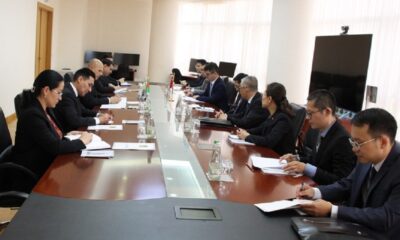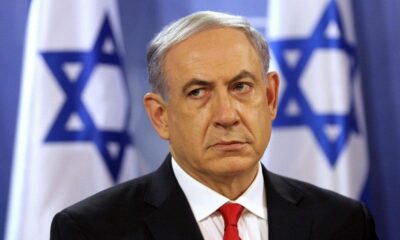Business
Afghanistan’s economy under the spotlight on eve of 1401, the new solar year
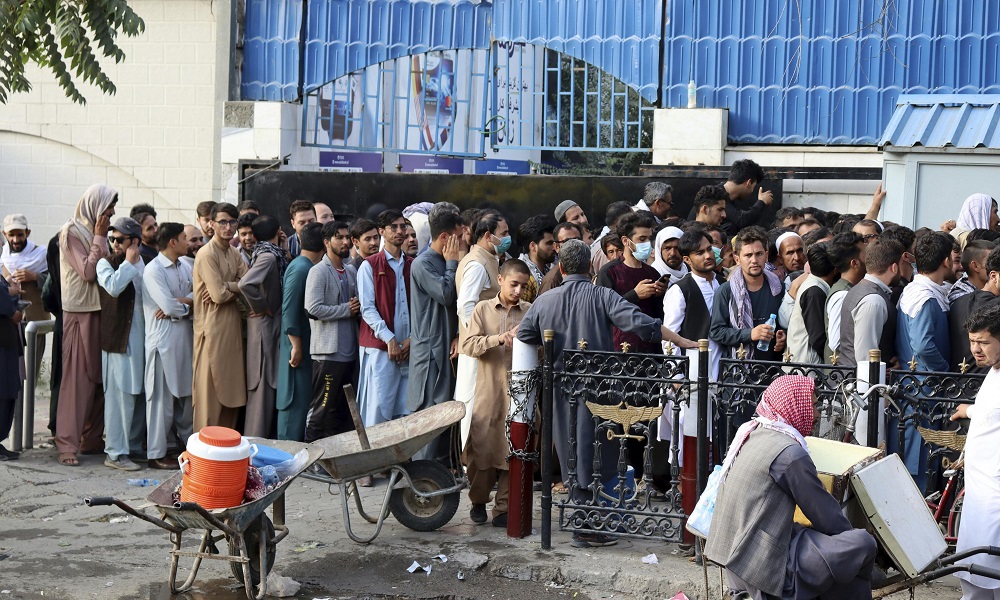
On the eve of Afghanistan’s new solar year, Nowruz, the year 1400 has proven to be one of increased economic hardships that ultimately led to a financial crisis in the country.
In August, the former government collapsed which sparked widespread panic among Afghans who rushed to banks to draw their money.
People queued for hours, for days and even weeks but as the Ashraf Ghani government tumbled and foreign troops withdrew, foreign funding that propped up the country came to a sudden halt and the banking system froze.
In order to prevent the complete collapse of the banking system, the Islamic Emirate of Afghanistan (IEA), which had swept to power, stepped in and imposed strict restrictions on the amount of cash people could withdraw.
Global sanctions added to the mix and made life even more difficult for Afghans - so much so that the IEA was unable to pay government employees their salaries for the first few months.
Gradually, the economic situation stopped its freefall and leveled out. Humanitarian aid helped ease hunger and shipments of cash from the United Nations has continued to come in to the country. Although sanctions are still in place, the UN has stepped in to assist with regards to the economy.
On a more positive note, some development projects have been kickstarted by the IEA these past few months - especially transit projects connecting Afghanistan to Central Asia.
However, Afghanistan’s economic situation is still critical.
Key problems are as follows:
• No new investments have been made in 1400 in the country
• With the coming to power of the Islamic Emirate, banking activities were suspended for a significant period of time
• International organizations stopped major projects they had been funding, leaving many projects unfinished
• Global sanctions were imposed on the country's economic system
• Trade between Afghanistan and its neighbors stalled due to a lack of funding and political uncertainty for some time
• The Afghani (AFN) plummeted to a low of 130 AFN to the US dollar. It has since recovered somewhat
• Food and fuel prices have risen unprecedentedly
• About $9 billion of foreign assets were frozen by the United States
Despite all these challenges, the IEA has stepped up efforts to stabilize the economy and to improve the situation. The IEA came out in support of the private sector and worked hard to save the country's economy from collapsing altogether.
The Ministry of Finance meanwhile said the economic situation in the country has improved slightly in the past few months and that the Islamic Emirate will take major steps to boost the economy in the new year (1401). The IEA also said it will launch some key development projects.
The Ministry of Finance, however, was unable to finance the budget for the new fiscal year from domestic revenue. This is not however new, as a major part of the budget has been funded by the international community for the past 20 years.
Economic experts believe the Islamic Emirate has taken effective steps to stabilize the economy, but many have said government needs to facilitate new investments.
Afghanistan's private sector has in addition called on the Islamic Emirate to invest in agriculture and mining; to generate electricity; and develop transit, telecommunications, fiber optics and telecommunication sectors.
Business
Mullah Baradar inaugurates a blanket factory in Kabul
About 930 million Afghanis have been invested in the factory and it currently has the capacity to produce 1000 blankets per day.
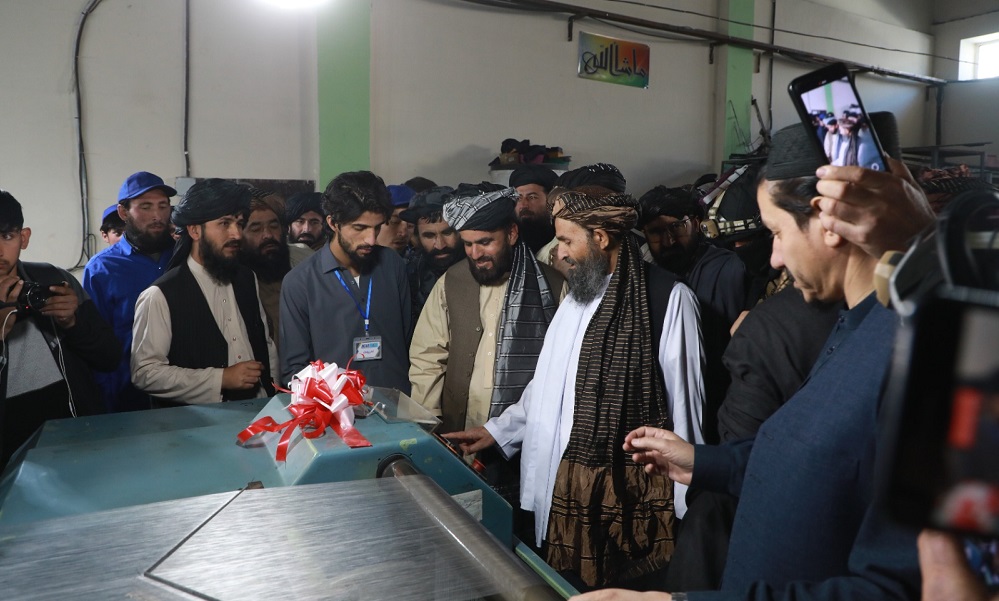
Mullah Abdul Ghani Baradar, the economic deputy prime minister, on Sunday inaugurated a blanket factory in Pul-e-Charkhi industrial area in Kabul city.
Speaking at the inauguration ceremony, Baradar said that with the provision of overall security in the country and the reduction of corruption, a favorable environment for medium and small investments has been created.
He added that the Islamic Emirate continues to support domestic industries by implementing effective import substitution policies, which plays an important role in strengthening the country's national economy.
Baradar stated that in order to support domestic industries, heavy-duty machines worth 100 million afghanis ($1.4 million) were purchased for the newly established blanket factory based on the Islamic Murabaha Islamic financing structure.
Murabaha is a sales contract where the buyer and seller agree on the markup or "cost-plus" price for the item being sold.
Baradar also mentioned that the Islamic Emirate seeks to reduce dependence on foreign imports by increasing the level of investment.
He called businessmen and investors to invest inside Afghanistan for the economic growth of the country.
According to Baradar’s office, the newly established blanket factory uses domestically sourced raw materials including wool and cotton, which will help increase job opportunities in addition to strengthening the livestock and agriculture sector.
About 930 million afghanis has been invested in the factory and it currently has the capacity to produce 1,000 blankets per day.
The factory has employed about 900 people.
Business
Trade volume between Kabul-Tehran has reached over $1.8 billion: MoIC
Afghanistan News: Iranian officials also stated that since the beginning of this year, the export of non-oil goods to Afghanistan has increased to $1.3 billion
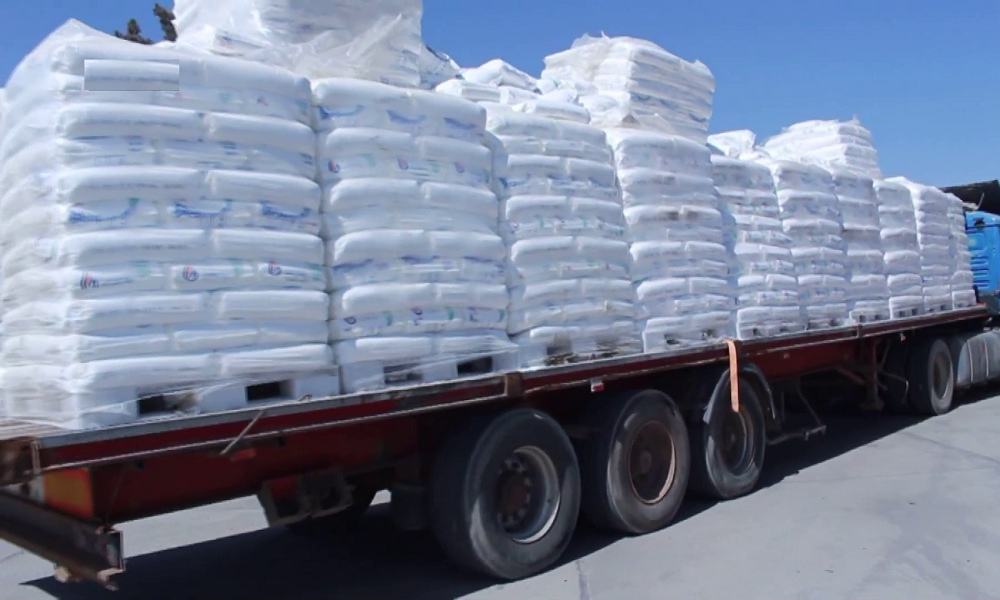
Ministry of Industry and Commerce (MoIC) says the trade volume between Afghanistan and Iran has reached more than $1.8 billion over the past seven months of 1403 [solar year].
The ministry's spokesman Abdulsalam Jawad Akhundzada said these trades include oil and non-oil goods.
According to Jawad Akhundzada, trade and transit with Iran is expanding.
“Afghanistan's trade with Iran during the seven months of 1403 was worth $1 billion 827 million dollars, of which 30 million dollars were exports and $1 billion 797 million dollars were imports,” said Akhundzada.
“Most of the major export goods are mineral stones, raisins, all kinds of soft drinks and sesame seeds, and the main import items are diesel fuel, petrol, raw materials for manufacturing, liquid gas and cement,” he added.
Meanwhile, Iranian officials also stated that since the beginning of this year, the export of non-oil goods to Afghanistan has increased to 1.3 billion dollars.
Tehran Times newspaper quoted the Iranian customs officials and reported that Afghanistan was Iran's fifth largest importer of non-oil products in the last seven months.
Business
Afghanistan-India trade volume totals $650 million so far this year
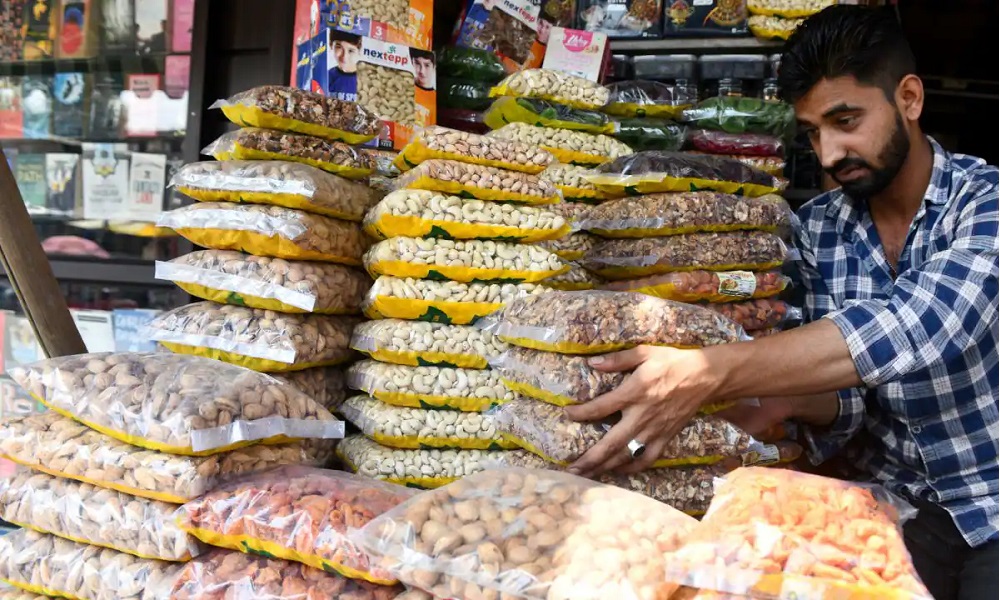
Trade between Afghanistan and India totals $650 million in the first 10 months of this year, the Islamic Emirate’s Ministry of Industry and Commerce announced this weekend.
In a post on X on Saturday, the ministry’s spokesman Abdulsalam Jawad Akhundzada said $477 million in exports and $203 million in imports were recorded this year.
He said Afghanistan’s main exports to India included dried figs, raisins, saffron, green cumin, and almonds.
According to Akhundzada, the main items imported from India over the past 10 months were sugar, raw materials for industrial factories, new clothing, and roasted chickpeas.
Just last week, JP Singh, Indian foreign ministry’s joint secretary for the Pakistan-Afghanistan-Iran division, visited Kabul and met with Acting Foreign Minister Amir Khan Muttaqi.
The two sides discussed political and economic relations between Afghanistan and India, and people's movements, the Afghan foreign ministry said in a statement.
Muttaqi expressed hope that relations between India and Afghanistan would expand in various fields. He stressed that to develop trade relations, Indian visa facilities should be increased for Afghan citizens, especially businesspersons.
According to the statement, JP Singh said that relations with Afghanistan are important for India and have an ancient history.
The Indian diplomat said that along with humanitarian aid to Afghans, India has also started development assistance to Afghanistan and is engaged in technical discussions with relevant Afghan institutions.
JP Singh stressed that in the near future, negotiations will be held between technical delegations of regional countries including Afghanistan and India on the Chabahar port.
He also promised to increase Indian visa facilities for Afghans.
-

 Sport5 days ago
Sport5 days agoFIFA unveils Innovative Club World Cup Trophy ahead of new tournament in 2025
-
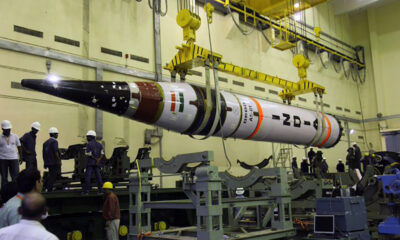
 Regional5 days ago
Regional5 days agoIndia’s successful test of hypersonic missile puts it among elite group
-
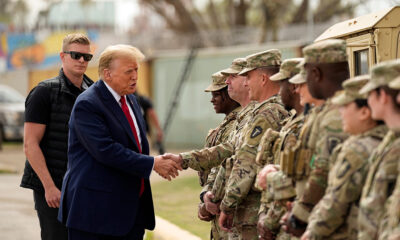
 Latest News5 days ago
Latest News5 days agoTrump team compiling list of military officers responsible for US withdrawal from Afghanistan
-

 Latest News5 days ago
Latest News5 days agoCanada sent 19 failed asylum seekers back to Afghanistan last year
-

 Sport4 days ago
Sport4 days agoAbu Dhabi’s thrilling T10 tournament just days away
-

 World4 days ago
World4 days agoBiden allows Ukraine to use US arms to strike inside Russia
-

 Sport4 days ago
Sport4 days agoAfghanistan beat UAE by 169 runs in U19 tri-series
-
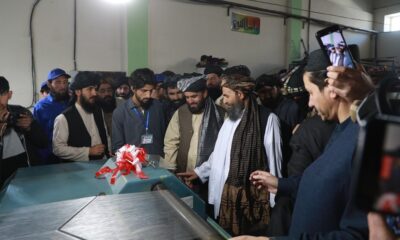
 Business5 days ago
Business5 days agoMullah Baradar inaugurates a blanket factory in Kabul


